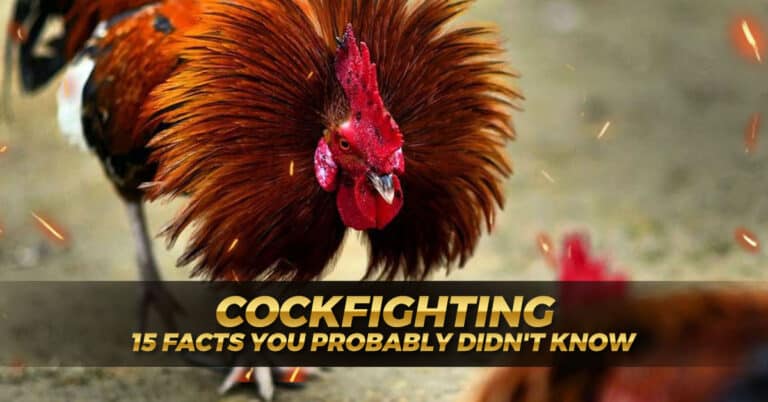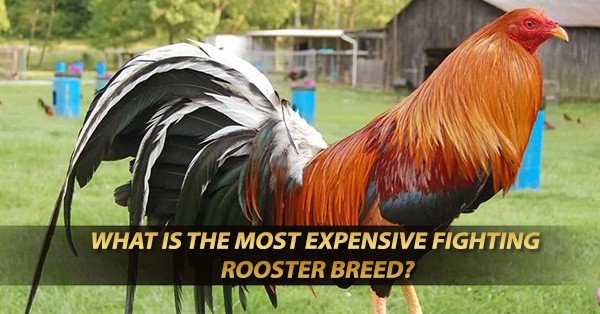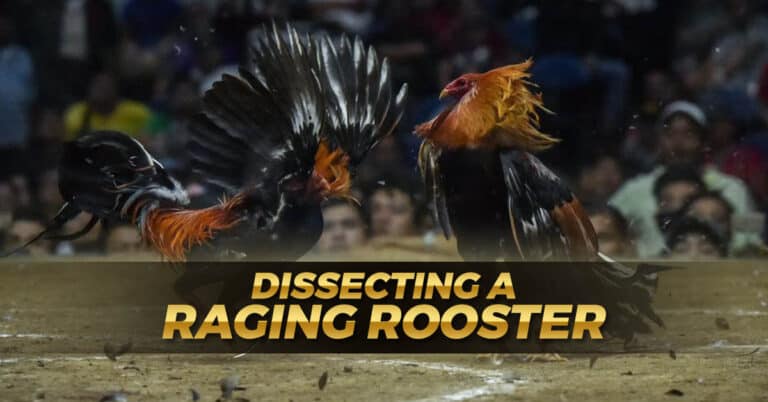Post Stress Gamefowl Vaccination Program and Gamefowl Bloodline Roundhead
Learn how Gamefowl Vaccination Program and Gamefowl Bloodline selection can help maximize your gamefowl’s health and performance in the cockfighting arena. They are bred for their aggression, strength, and endurance. Due to their competitive nature, gamefowl breeders strive to ensure that their birds are always in top physical condition. One way of achieving this is through vaccinations. However, post-vaccination stress can be a significant problem for gamefowl breeders. In this article, we will explore the symptoms, causes, and remedies of gamefowl post-vaccination stress.

Post Stress Gamefowl Vaccination Program
Post-vaccination stress is a phenomenon that occurs after gamefowls have been vaccinated. It is a condition that affects their immune system, making them susceptible to various diseases. Gamefowl breeders have reported this condition to be a major problem, with some birds dying after vaccination. This has led to concerns among breeders about the safety and effectiveness of vaccinations.

Symptoms of Post Stress Gamefowl Vaccination Program
Gamefowl post-vaccination stress can manifest in different ways, with the following being the most common symptoms:
Lethargy and Depression
Gamefowls who are suffering from post-vaccination stress tend to become lethargic and depressed. They will spend more time sleeping than usual and may have a reduced appetite.
Diarrhea
Another common symptom of post-vaccination stress is diarrhea. This can be a result of a weakened immune system, making the bird susceptible to various bacterial and viral infections.
Sneezing and Coughing
Gamefowls that are suffering from post-vaccination stress may also exhibit sneezing and coughing. This is usually a sign of respiratory infection, which can be fatal if left untreated.
Swelling and Inflammation
Post-vaccination stress can also cause swelling and inflammation of the injected area. This is usually a sign of an adverse reaction to the vaccine.
Reduced Egg Production
Gamefowl hens may experience a significant reduction in egg production due to post-vaccination stress.
Causes of Post-Stress Gamefowl Vaccination Program
Post-vaccination stress in gamefowls can be caused by various factors, including:
Incorrect Administration of Vaccines
One of the primary causes of post-stress gamefowl vaccination programs is incorrect administration of the vaccine. The vaccine should be given at the right time, using the right dosage and route of administration. If the vaccine is not administered correctly, it can lead to adverse effects on the birds, such as swelling, abscesses, and even death.
Stressful Environment
Stressful environments can also contribute to post-stress gamefowl vaccination programs. Birds that are subjected to high levels of stress, such as overcrowding, poor ventilation, and high temperatures, are more susceptible to the post-stress effects of vaccination. Stress weakens the birds’ immune systems, making them more vulnerable to infections.
Poor Nutrition
Birds that are fed a poor diet are more susceptible to the post-stress effects of vaccination. A balanced diet that meets the birds’ nutritional needs is essential for their immune system to function optimally. Lack of proper nutrition weakens the birds’ immune system, making them more vulnerable to infections.
Inadequate Hygiene
Poor hygiene practices, such as overcrowding and lack of sanitation, can contribute to post-stress gamefowl vaccination programs. Inadequate hygiene increases the risk of disease transmission and infection, which can exacerbate the effects of vaccination.
Genetic Factors
Genetic factors can also contribute to post-stress gamefowl vaccination programs. Certain breeds of birds may be more susceptible to adverse effects of vaccination due to genetic predisposition. It is essential to identify these breeds and take appropriate measures to minimize post-stress effects.
How to Avoid Post-Stress Gamefowl Vaccination Program
Preventing post-vaccination stress in gamefowl is essential for their health and well-being.
If your gamefowl develops post-vaccination stress, there are steps you can take to manage it. These include:
Gamefowl Bloodline Roundhead
The Roundhead bloodline is a gamefowl breed that originated in England. This breed was created by Sir William Edward Taft in the early 1800s. The Roundhead bloodline was a result of breeding the English Game and the Malay breed. The English Game fowl was a breed that was known for its fighting skills, while the Malay breed was known for its strength and size.
The Roundhead bloodline was initially bred for its fighting skills, and it quickly became popular among gamefowl enthusiasts. Today, the Roundhead bloodline is known for its fighting skills, beauty, and intelligence.

What are the physical characteristics of the Roundhead bloodline?
The Roundhead bloodline is a medium-sized bird with a muscular build. It has a short and broad beak, which is ideal for fighting. The Roundhead bloodline has a pea comb, which is small and compact, and its wattles are small and round. The Roundhead bloodline has a red or dark brown eye color, and its feathers are a mix of black, brown, and red.
What are the traits of the Roundhead bloodline?
The Roundhead bloodline is known for its excellent fighting skills. This breed is a gamefowl, which means that it is bred specifically for fighting. The Roundhead bloodline is also known for its intelligence and beauty. The Roundhead bloodline is an excellent bird to breed if you want to produce gamefowl that are good-looking and have excellent fighting skills.
How do you breed the Roundhead bloodline?
Breeding the Roundhead bloodline is not difficult, but it does require some knowledge and experience. To breed the Roundhead bloodline, you need to select two birds that have the Roundhead bloodline. You should choose a male bird that has good fighting skills and a female bird that has good looks.
When breeding the Roundhead bloodline, it’s essential to keep in mind that this breed is prone to certain health problems. For example, Roundhead birds are prone to respiratory infections, so you should make sure that their living conditions are clean and hygienic.
Breeding Roundhead Bloodlines
If you’re a fan of cockfighting, you must have heard of Roundhead bloodlines. The Roundhead breed is known for its strength, speed, and agility, making it a popular choice for many cockfighting enthusiasts. If you’re interested in breeding Roundhead bloodlines, there are certain things you need to know to ensure the best results.
Choosing the Right Breeds
Breeding Roundhead bloodlines requires selecting the right breeds to ensure the best results. Here are some things to consider when choosing the parent stock:
Bloodline and Lineage
Roundhead bloodlines are bred through strict selection processes to ensure that they maintain their desired characteristics. Look for breeds with pure Roundhead lineage to get the best results.
Physical Characteristics
Physical characteristics such as size, color, and body structure are crucial in breeding Roundhead bloodlines. Look for breeds with the desired physical attributes to ensure the offspring inherit these traits.
Performance
Performance is an important factor to consider when selecting parent stock for breeding Roundhead bloodlines. Look for breeds with a proven track record in cockfighting to ensure the offspring inherit these traits.
Setting Up the Breeding Grounds
After selecting the right breeds, the next step is to set up the breeding grounds. Here are some things to consider:
Space
Chickens require enough space to move around freely. Ensure that the breeding grounds have enough space to accommodate the parent stock and their offspring.

Feeding
Proper nutrition is crucial for the health and growth of the parent stock and their offspring. Ensure that the breeding grounds have enough food and water sources to sustain the birds.
Lighting
Lighting plays a crucial role in the breeding process. Ensure that the breeding grounds have enough natural light or artificial light sources to regulate the birds’ reproductive cycle.
Breeding and Caring for the Chicks
Breeding Roundhead bloodlines requires a hands-on approach to ensure the best results. Here are some things to consider when breeding and caring for the chicks:
Mating
The mating process is crucial in breeding Roundhead bloodlines. Ensure that the parent stock is healthy and mature enough to breed. You can use a breeding pen to ensure controlled mating.
Incubation
After mating, the hen will lay eggs that need to be incubated for 21 days. Ensure that the incubation conditions are optimal to ensure a high hatch rate.
Caring for the Chicks
After hatching, the chicks require proper care to ensure their survival and growth. Ensure that they have enough food, water, and warmth. You can use a brooder to regulate their temperature.
Conclusion
To prevent and control contagious poultry diseases, poultry vaccinations are frequently used. By preventing or minimizing the emergence of clinical disease at the farm level, their usage in the production of poultry aims to increase output.
Check out the healthy gamefowls in action in Sabong International and DS88 today. Breed your own and participate in local cockfights too.










